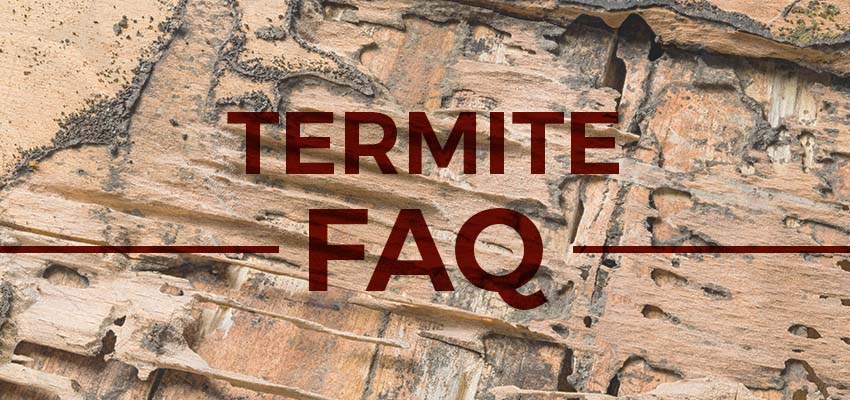Termites are wood destroying insects known for causing structural damage and costing homeowners a lot of time, stress, and money. The warmer days of April mixed with a slight breeze and rain cause termites to swarm, meaning termite activity is high this month. It’s important to know a little bit about these insects. Here are some frequently asked questions about termites:
Question:
Is it possible for termites to be harmful to humans?
Answer:
Typically, no, however some people are more sensitive to body fragments and airborne particles of insects. This can cause or contribute to asthma, or skin irritations. If you suspect this might be a problem, consult your doctor.
Question:
Can my firewood be infested with termites?
Answer:
Yes, firewood has the potential to be infested with termites if it’s not stored properly. Firewood needs to be stored off the ground, in a dry environment and away from the home. This will help keep your home safe if the wood becomes infested. Following these instructions will greatly minimize the likelihood of termite activity.
Question:
How many times a year should my home be treated for termites?
Answer:
Your home does not need to be treated every year; it needs to be inspected every year. Termite treatment (depending on the soil conditions and other environmental factors) should last for a few years. Having yearly inspections will allow the professionals to ensure there is no change in termite activity, or to make note of potential damage and treat it as they deem necessary.
Question:
If my neighbor has termites, will my home get them as well?
Answer:
Not necessarily. Most termite treatments affect the termites in the treated home, however, some repellant treatments run the risk of deterring the termites from the treated house and sending them in search for food – the neighbor’s house. If possible, it would be best to know what type of treatment your neighbor’s pest control specialist is using.
Question:
Can mulch attract termites?
Answer:
Yes. Mulch provides the food, moisture shelter, and ideal temperatures termites need in order to survive. Mulch will allow termites to hide underground comfortably. It is recommended to place mulch no less than 6 inches away from the foundation of the building. It is also recommended to keep mulch thin – the thicker the mulch, the more welcoming it becomes for termites.
Question:
Is it true that termites go away during the winter?
Answer:
Termites do not hibernate. While it’s true they become less active during colder months, they do not go away.
If termites are in an area that stays around 65˚F all year round, they will remain active all year.
Question:
How do I know if I have termites?
Answer:
The best way to determine if you have a termite problem is to have a professional inspect your home annually.
A few tell-tale signs of termite activity are:
Swarmers: in the Spring termite swarmers are a prime sign of termite activity. They appear in large numbers and are often mistaken for flying ants. Unlike flying ants though, termite swarmers have straight bodies, beaded antennae and their sets of wings are the same size. Flying ants have jointed antennae, and the back wings are smaller than the front wings.
Termite Tubes: Since termites are fragile insects and need moist conditions to survive, they create tubes out of mud and cellulose to travel above ground. The tubes look like brown straws on the ground. If you see one of these tubes, call a professional to come do an inspection.
Termite Cement: In an attempt to keep in moisture and reduce air flow, termites will seal small cracks and holes with mud. Check your foundation for dried dirt that doesn’t belong – it’s a sign of termite cement and a professional should be called for a more thorough inspection.


Recent Comments